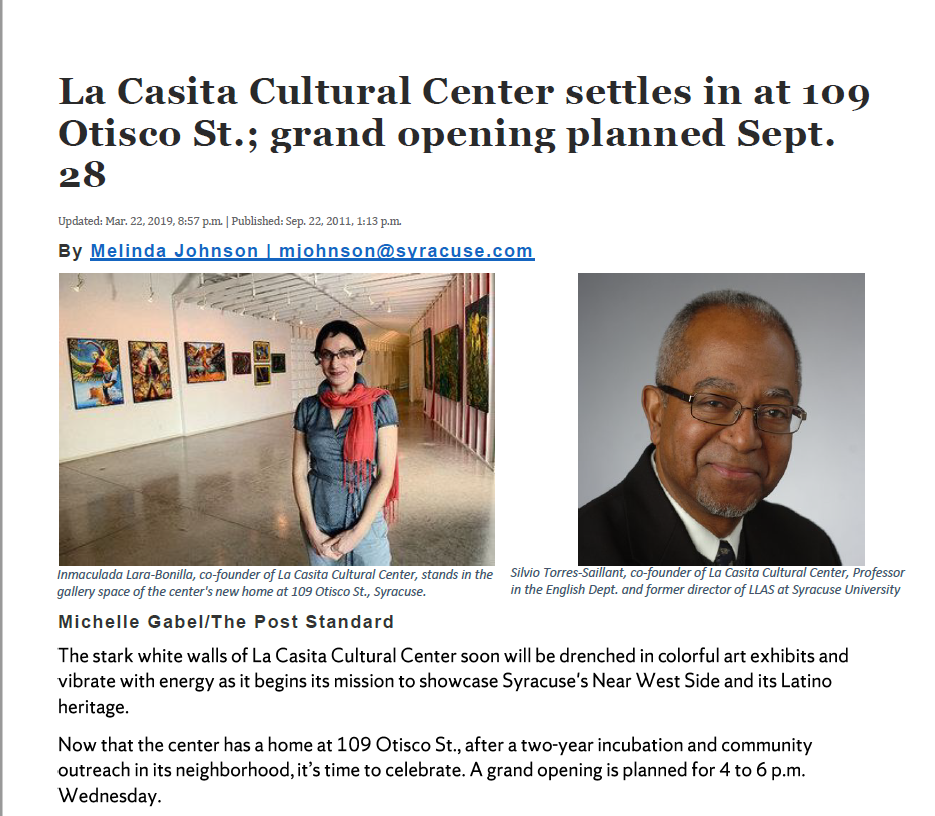
As La Casita celebrates its 10th Anniversary with the latest exhibit, “Corazón del Barrio/Heart of the Barrio”, the center looks back at its milestones and accomplishments. The opening of the center in the fall of 2011 is one of those landmark achievements.
In 2011, La Casita Cultural Center, found a home located in the heart of Syracuse’s Near Westside. It all began as an initiative of Syracuse University’s Latino-Latin American Studies Program (LLAS) in collaboration with partners within the local community. Co-founders, Inmaculada Lara-Bonilla (now a faculty member of Hostos Community College, CUNY) and Silvio Torres-Saillant (Professor in the English Dept. and former director of LLAS at Syracuse University) spent two years getting to know this community and hosting open dialogues to discuss the needs and wants of the local Hispanic communities. These conversations informed the design of the space and the programs that continue to develop at La Casita today.
The model concept for La Casita can be traced to Spanish Harlem and the South Bronx. With the help of neighbors, Jose (Chema) Soto created a bright, lively, and sustainable space for Latino communities to gather, celebrate their culture and traditions, host events, play music, dance, or simply visit. “Our mission is artistic, cultural, educational, and it has to do with this neighborhood. It has to do with the Latino population in Central New York and anything that relates to Latin American and Caribbean-American heritage,” said Lara-Bonilla at the opening of the center.
Ten years later, La Casita is still dedicated to the addressing the needs of the local Hispanic communities. To this day the center continues to engage with the organizations, community leaders, and families, who have collaborated and participated in La Casita’s programs. To each of them we dedicate this exhibit since they are the true heart of the barrio.
Support for this program comes from the Office of Cultural Engagement for the Hispanic Community at the College of Arts & Sciences, the Humanities Center, the Latino-Latin American Studies Program, and the Program on Latin America and the Caribbean at Syracuse University.
